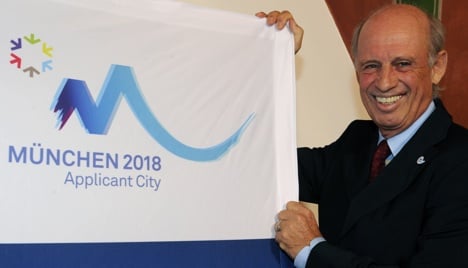Speaking in Munich on Monday evening, DAV president Heinz Röhle said that not only should the events themselves be planned with the environment in mind, but there should be clear concept for how the Olympics would affect the region afterwards.
Röhle warned that if no progress had been made in creating such a concept by the end of this year, the DAV would pull out of the bid.
The DAV is the world’s biggest mountain sports association, with 851,000 members and is represented on the board of the joint bid being made by Munich and Garmisch-Partenkirchen.
“The long-term cooperation of the DAV is not unconditional,” Röhle said, before indicating that the present environmental concept for the Games was no more than a “good statement of intent.”
He said that among the problems was that the traffic arrangements did not foresee a substantial role for public transport, and that it was not clear how much money would be made available for 18 ecological projects associated with the bid.
Röhle attached particular importance to the idea of a UNESCO biosphere reservation in the Ammergau Alps and an “ecological sports area” in the Bavarian Alps, which the DAV had proposed. He said he wanted to see the Olympic Games create more nature reservations.
Several environmental groups have already expressed concerns about the bid, which claims to have a “green agenda.” The Bavarian branch of the Nature Preservation Association (BN) no longer believes that the Olympics can be managed in an ecologically sustainable way, and has stepped down from the bid’s environmental commission, along with two other groups.
The bid panel must submit its initial “Mini Bid Book” to the International Olympic Committee (IOC) by March. The IOC is expected to nominate the candidate cities in July. The IOC’s final decision on the location for the 23rd Winter Olympics will be made in Durban in July 2011.



 Please whitelist us to continue reading.
Please whitelist us to continue reading.
Member comments